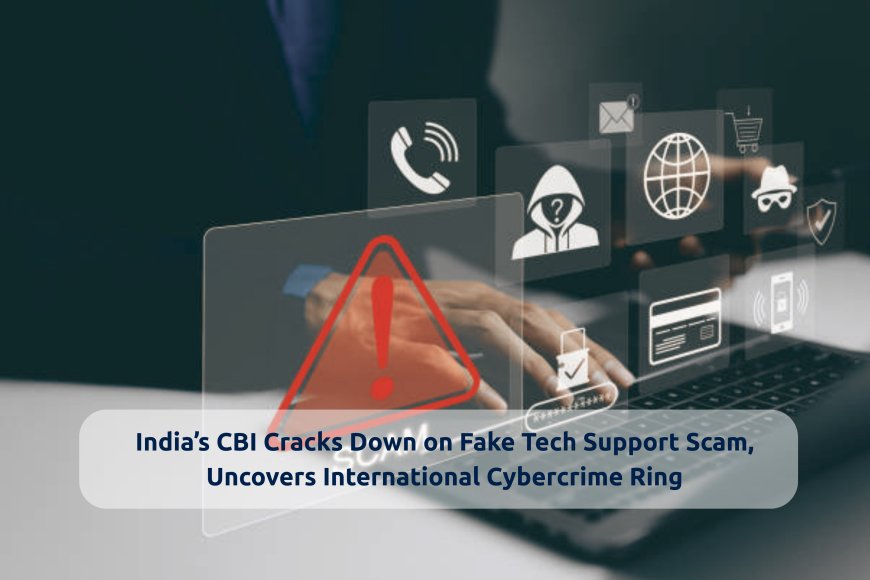India’s CBI Cracks Down on Fake Tech Support Scam, Uncovers International Cybercrime Ring
India’s CBI dismantled a global cybercrime ring running fake tech support scams targeting UK and Australian citizens, causing over £390,000 in losses and making two arrests in Noida.

The Central Bureau of Investigation (CBI) in India cracked in an international cybercrime group that ran fake tech support scams that targeted people in the UK and Australia.These frauds made people think their PCs were infected, which made them pay for false tech support.Officials said that the fraud cost the UK alone more than £390,000 (about $525,000).
Operation Chakra V took place on July 7, 2025, and involved raids at three places in Noida.One of these places was a fully functional fake call center called FirstIdea, which was located in the Noida Special Economic Zone.Two people were taken into custody, one of whom was a prominent player in the scheme.
The CBI added that the scam center was exceptionally well-organized and used technological tools including fake scripts, VoIP (Voice over Internet Protocol) conversations, and false numbers to cover up their identities and make the scam look authentic.They also planned their calls around the time zones of their targets to make them sound more real. During the raid, investigators spotted scammers making fake tech support calls in real time.
Scammers posed as support agents from well-known organizations like Microsoft and told victims that their machines had been hacked or infected.They then urged the victims to pay to fix these fake problems.
This successful bust was the result of 18 months of close cooperation between the CBI, the UK’s National Crime Agency (NCA), the U.S. FBI, and Microsoft. Over 100 people in the UK alone were tricked by this operation.
This is a big step toward stopping online fraud, yet scam operations are still growing around the world.Scam centers are continually growing, notably in portions of Southeast Asia, even if many have been shut down in the past.
This article is based on information from The Hackers News







